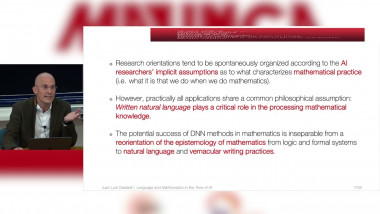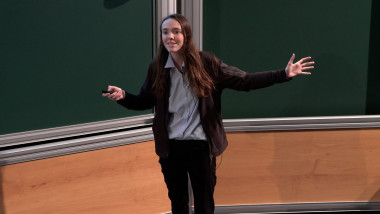
Language and Mathematics in the Time of AI. Philosophical and Theoretical Perspectives
By Juan Luis Gastaldi

Deciding What Game to Play, What Mathematics Problem to Solve
By Katie Collins
By Stefan Wager
Appears in collection : Mathematical Methods of Modern Statistics 2 / Méthodes mathématiques en statistiques modernes 2
Classical approaches to experimental design assume that intervening on one unit does not affect other units. There are many important settings, however, where this non-interference assumption does not hold, e.g., when running experiments on supply-side incentives on a ride-sharing platform or subsidies in an energy marketplace. In this paper, we introduce a new approach to experimental design in large-scale stochastic systems with considerable cross-unit interference, under an assumption that the interference is structured enough that it can be captured using mean-field asymptotics. Our approach enables us to accurately estimate the effect of small changes to system parameters by combining unobstrusive randomization with light-weight modeling, all while remaining in equilibrium. We can then use these estimates to optimize the system by gradient descent. Concretely, we focus on the problem of a platform that seeks to optimize supply-side payments p in a centralized marketplace where different suppliers interact via their effects on the overall supply-demand equilibrium, and show that our approach enables the platform to optimize p based on perturbations whose magnitude can get vanishingly small in large systems.
